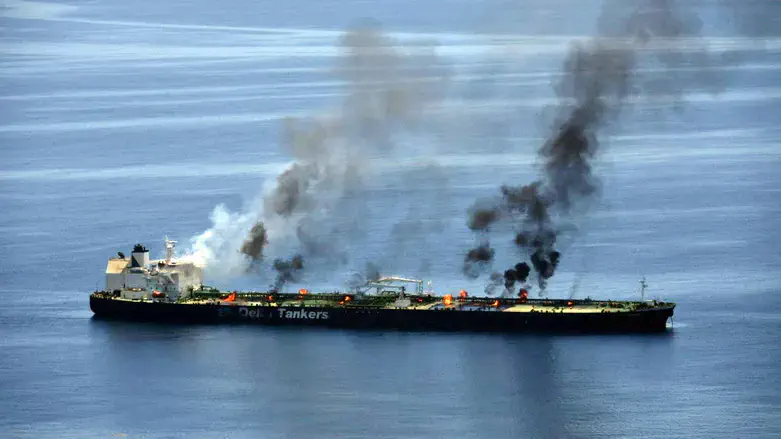
Yemen's Houthi rebels have agreed to allow tugboats and rescue ships to reach a damaged crude oil tanker in the Red Sea that the rebels attacked last week, Iran's mission to the United Nations said on Wednesday, according to Reuters.
The Sounion tanker is carrying 150,000 tons of crude oil and poses an environmental hazard, shipping officials said. Any spill has the potential to be among the largest from a ship in recorded history.
"Several countries have reached out to ask Ansarullah (the Houthis), requesting a temporary truce for the entry of tugboats and rescue ships into the incident area," Iran's UN mission in New York said, according to Reuters.
"In consideration of humanitarian and environmental concerns, Ansarullah has consented to this request," it added.
Houthi spokesperson Mohammed Abdulsalam told Reuters on Wednesday there is no temporary truce and the group only agreed to allow the towing of oil tanker Sounion after several international parties contacted the group.
In claiming last week’s attack on the Sounion, the Houthis claimed the Greek-flagged tanker "belongs to a company that has ties with the Israeli enemy" and said it was "accurately and directly hit" with drones and missiles.
This past Friday, the Houthis released video footage showing the oil tanker burning in the Red Sea after their attack.
The Sounion was first hit by gunfire from two small boats last Wednesday, then struck by three unidentified projectiles, which sparked a fire and left it without engine power, the UK Maritime Trade Operations (UKMTO) office said.
Its 25 crew members were rescued by a European warship a day later and transported to Djibouti. The oil tanker was later attacked again.
On Tuesday, the Pentagon said that the Sounion is still on fire and may be leaking oil, adding that attempts to salvage it have been thwarted by the Houthis, who have threatened more attacks.
The Iranian-backed Houthis have upped their attacks in the region since the start of the war in Gaza, having launched drones towards southern Israel and targeting commercial ships in the Red Sea region.
In the wake of the uptick in Houthi attacks, the US formed a coalition, made up of more than 20 countries, aimed at safeguarding commercial traffic in the Red Sea from attacks by the Houthis.
In mid-January, with support from other countries, the US and Britain targeted just under 30 Houthi locations with 150 different weapons. They have since carried out several rounds of strikes against Houthi targets.
The Houthis have been unfazed by the strikes, saying that the campaign against the "Zionist enemy" will continue and that the attacks against the American and British ships will not stop.
